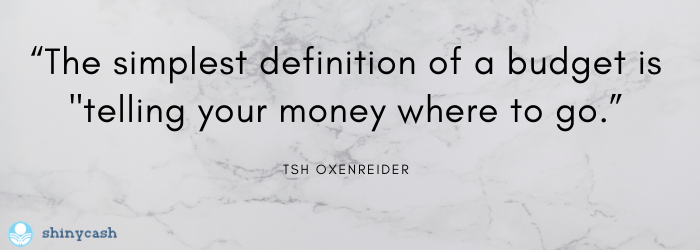The Ultimate List of Personal Finance Tips
Working hard but still facing a big pile of debts, and your expectations about financial life are falling flat? How to get out of this mess? This burning question can deprive you of sleep affecting your physical and mental state. Nothing to fret about! Firstly, you should develop the right money mindset and change your financial behavior. We have rounded some useful money tips to help you get on top of your finances.
1. Start a Budget
Do you have a budget? If not, immediately set to work. Even a small spreadsheet of your expenses and incomes will help you to understand where you stand. Budgeting is a milestone for turning your financial goals into a reality. Besides, writing down the numbers on the list will help you visualize the spent amounts and carefully think about the whys and wherefores of expenditures.

2. Set Short-Term Financial Goals
Are you a seven-year-old boy wanting to buy an electric scooter? Maybe you are a 20-year-old girl craving that trendy dress or a boy who dreams of a new car. The fact is that you can’t afford to buy these items at the moment. But the wish to obtain them will make you keep a piggy bank. This is a straightforward example of how setting financial goals can motivate you to squirrel away some money. Your financial goals may embrace getting out of debts, saving for a fantastic trip, buying a car, etc.
.png)
3. Beat the Impulse Buying
Is money burning a hole in your pocket? We understand how hard it may seem for some people to resist buying a trendy outfit. At first, you may feel happy about the purchase, but believe that the thrill will end with facing a three-digit number of the upcoming bill. Every time you are about to make a purchase, wait for some time before buying it. If you still think you need it after a week, buy it, but the chances are high that you will keep the money.
.png)
4. Count and Organize Your Debt
However hard it may seem, you should count all your debt, including monthly interest rates of loans. It will give you a clear understanding of which loans should be paid first. You can turn someone for sound advice on how to take control of your debts without having a maxed-out credit card, high-interest rate loan. Keeping an updated list of your debts.
.png)
5. Build an Emergency Fund
Emergency funds can be useful to help you get through the tough times avoiding turning to high-interest loans. Emergency funds shouldn’t be confused with savings for financial goals. Unanticipated expenses can pop up out of the blue, and the lack of an emergency fund will lead to an unending stream of mishaps.
.png)
6. Search for Books and Blogs on Personal Finance
Overwhelmed in debts when the way out seemed far away? Start reading financial books or articles, browse through the success stories, and you will be astonished how the reed can turn things around. You will change your mindset, get motivated to start your financial journey, be full of desire to invest, or create your own business.
Some of the widespread financial books include but are not limited to ‘You Are a Badass at Making Money’ by Jen Sincero, ‘The Automatic Millionaire,’ by David Bach, ‘The Simple Path to Wealth,’ by JL Collins.
.png)
7. Make Investments
For some people, the word ‘investor’ can recall businessmen in black suits. Halt! It’s 2020! If you can conduct all your financial deals (paying the bills, loans, ordering, and paying by card) via the Internet, why can’t you make online investments? Don’t be scared of this word; shop around for smarter investment options.
.png)
8. Invest in Yourself
Don’t be greedy about spending money on your professional growth. It’s a way to keep your cash flow pumping in the future. You can choose cheaper options to take online classes, learn a new foreign language, or get a new computer skill.
.png)
9. Look for Extra Ways of Earning Money
Instead of tightening your purse strings, you can try to find other ways of filling your budget. Look for another part-time job; currently, the world wide net made it easier for everyone to turn their hobbies into a real income source. For instance, if you like writing, you can write blog articles. Fond of embroidery? Perfect. Give online lessons teaching thousands of embroidery amateurs. Those who have sales acumen can try their skills on different social media platforms. There are endless ways to add income; you should get the inspiration and set to work.
.png)
10. Save for Retirement
However funny it may seem, thinking about retirement when you are in your 20s or 30s, you need to start now.
.png)
The Bottom Line
Taking control of your finances doesn’t necessarily mean saying ‘no’ to shopping or any other kind of outlay, but it’s all about managing your finances more smartly; otherwise, you will be doomed irrespective of the amount of your income. Start caring for your healthy financial future right away!
Get started